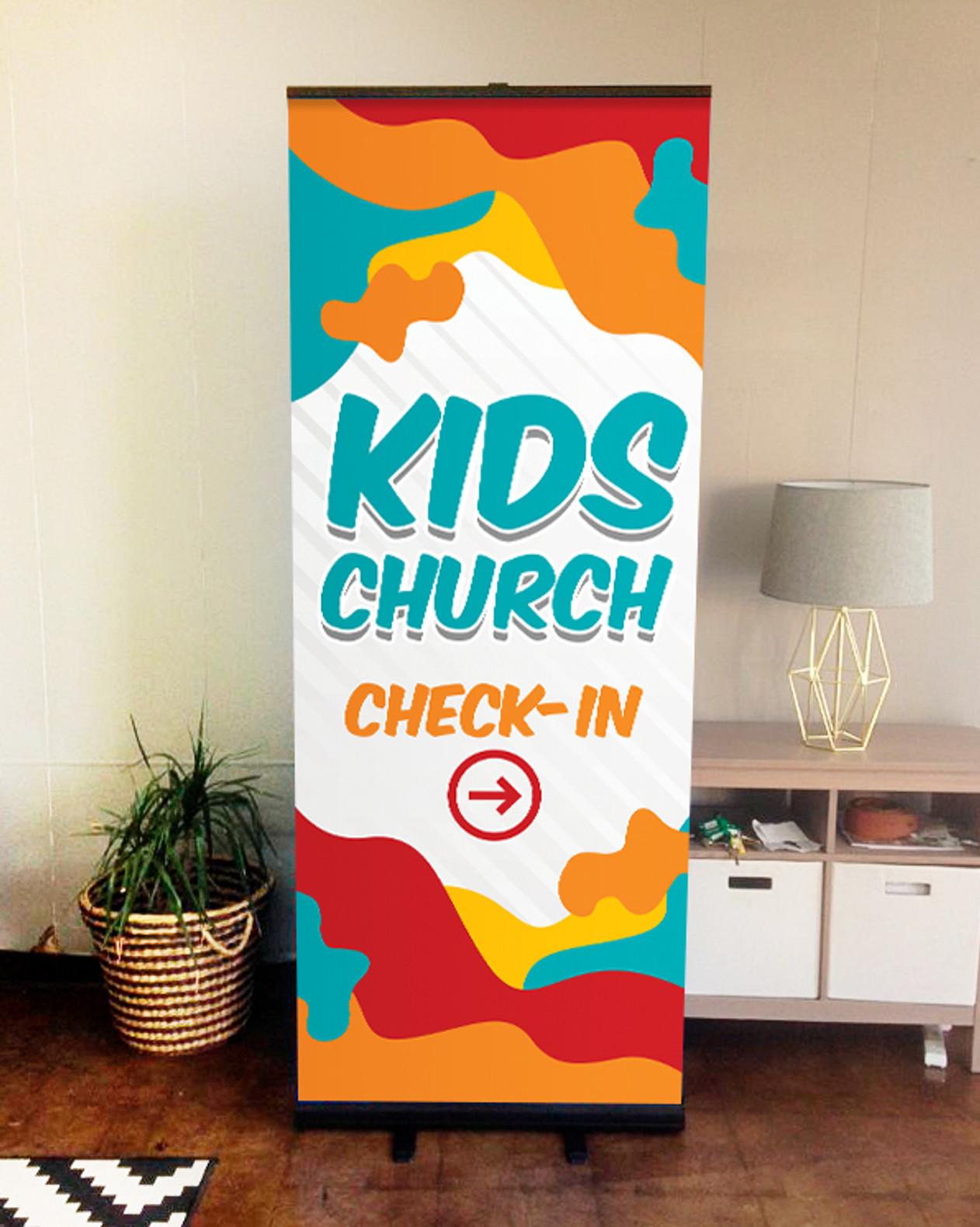How a Robust Kids Ministry Makes the Whole Family Feel Welcome
15th May 2023
As your ministry leaders seek to grow the congregation with more families, a key area to focus on is the children’s ministry. Parents looking for a church home want to know if their children will be safe and taught Biblical principles while they’re in your care.
If there’s any doubt about those two issues, they’ll look elsewhere for a church home. Many churches look to their children's ministry as the future of the congregation. After all, children are the next generation of leaders and the church needs to make a real difference in their lives. That starts by making families feel welcomed so they'll come back and become part of the church community.
Here are several elements of a great children's ministry that makes the whole family feel welcome:
#1 - Clear safety practices
Parents need to feel confident that their kids are safe when they drop them off at the children’s check-in area.
Help reassure parents by letting them know about your church’s safety processes.
Children's ministry safety rules may include:
- All children must be registered in the church’s database so we know if the child has any allergies or other special circumstances. We also need to know who is authorized to pick up a child after Sunday service.
- Each child will get a uniquely-numbered sticker on his/her clothing. The parents will also receive the same sticker that they’ll need to present at check-out to get the child. This ensures that only the correct individual receives the child back.
- At least two unrelated adults will be in each children's ministry room at all times.
- All staff and volunteers in the children’s ministry areas have passed a background check, completed an interview with staff, and attended the church for at least six months (or whatever your church’s policies state).
- Staff and volunteers wearing matching t-shirts with the kids church logo and name tags to identify they are authorize to be in that space.
#2 - Excellent Check-in Process
A new family will require more time to check in before a Sunday service than one that's been part of the church community for a while. Set aside a separate check-in station or line just for new families. Place your friendliest and most customer-service-focused volunteers here to make check-in a quick and positive experience.
Have a few volunteers focused on welcoming new kids while their parents answer questions. Help new kids feel special by asking about their school, what grade they're in, ask about their siblings (if they have any), and more. Start getting involved in kids' lives at check-in and build relationships from there.
#3 - Clean, fun children’s ministry areas
Your church doesn’t need the budget of a megachurch to have a children’s ministry area that’s clean and looks inviting to kids. Especially in today’s more germ-conscious environment, take extra care to disinfect and wipe down solid surfaces and toys.
Brightly colored walls, fun posters or wall art, and other decorations can make a room feel inviting for children. Parents love seeing well-decorated and clean rooms for their children to learn and play in. Design each room based on the ages it's intended for and the environment you're trying to create.
#4 - Great signage

New families are already dealing with many emotions and concerns as they pull into the church parking lot. Clear Kids Ministry signage makes it easy to locate children’s ministry check-in and the appropriate Sunday school classrooms for kids.
This is a subtle, yet powerful, way to show parents the church cares about them and their children.
#5 - Intentional children’s curriculum
If your children's pastor works to find (or create) an excellent curriculum for each age group, that will show families that you’re invested in their spiritual growth. Lessons and fun learning activities make church a pleasant experience for little children. They’ll begin to repeat the verses and songs they learn on Sundays at home.
Also, parents will notice their kid's demeanor when they pick them up after services. If their child is happily talking about what they did that morning, that’s encouraging to parents. While many parents try to instill Biblical principles in their children at home, having those lessons reinforced at Sunday school is a huge blessing.
#6 - Additional events
Parents are pressed for time between work and other obligations. If your children's ministry can host periodic events or fun activities, that can bless parents and make families feel cared for.
Here are some practical ideas:
- Offer a monthly date night for couples where you provide inexpensive childcare for a few hours. Offer lots of kid-friendly activities, opportunities to play, a Bible lesson, and snacks. Parents can enjoy a date night (or afternoon) knowing their kids are having fun and learning about God. It’s an investment in marriages and families.
- Host a great VBS program during the summer. Use this opportunity to encourage families throughout the community by inviting them to VBS. Parents working outside the home often look for ways to keep their kids safe and cared for when school is out. When they can find a church that offers a VBS program and their kids come home excited about going back the next day, they might be inclined to visit for Sunday services with the whole family.
- Easter, Christmas, and other critical times in the church calendar offer chances to serve families through the children’s ministry. Hosting an Easter egg hunt or putting on a Christmas play are great ways to involve the whole family even as you focus on the kids.
- Connect parents with small groups that include families with similar-aged kids and parents of older children. Older parents can be an incredible influence on younger parents who may feel overwhelmed or unsure of how to impact their children's spiritual growth. Encourage these small groups to build relationships and get involved with the larger church community. Often the mere presence of other parents who "get it," can help parents feel less stressed and better equipped to handle the challenges of parenthood.
- Offer parenting classes periodically. Provide different classes based on the age and life stage of children. After all, parenting toddlers is different than helping teenagers navigate life's challenges. Teachers of these courses should be experienced parents (and grandparents) who've been active members of the church for a few years or more. These classes can provide practical ideas and hope for parents who may feel inadequate to be the mom or dad they want to be for their kids.
Helping parents feel welcome starts by engaging with their children. If you'll invest time in a robust family ministry, you'll see stronger relationships within those families and will make them feel welcome from their first visit.































